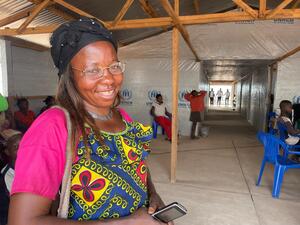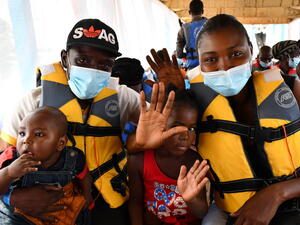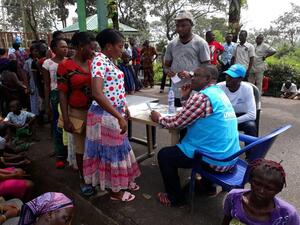Dialogue on Africa Repatriation and Reintegration
Dialogue on Africa Repatriation and Reintegration
Representatives of nine African nations that could see millions of refugees and displaced people returning home in the next few years will brief interested governments, organisations and NGOs this afternoon on the situation in their respective countries as a follow-up to yesterday's "Dialogue on Voluntary Repatriation and Sustainable Reintegration in Africa." The meeting, which is open, will begin at 1500 hours in Room XXIII and is scheduled to end at 1800 hours. Scheduled to make statements are the delegations of Eritrea, Somalia, Sudan, Angola, Sierra Leone, Liberia, Democratic Republic of Congo, Burundi and Rwanda.
Delegates from the 60 nations that attended yesterday's session of the dialogue endorsed UNHCR's proposal for creation of an international working group to support the voluntary return and sustainable reintegration of up to 2 million refugees and millions more displaced people in these nine nations over the next few years. Currently, these countries are in various stages of the process - some are already receiving returnees, some are well into the planning stages, and some are still awaiting further political developments or the consolidation of peace efforts on the ground before moving toward organised, voluntary repatriation.
Over the next few weeks, UNHCR will work with governments and other partners on the composition and work of the high-level working group. The bottom line is, there is now an excellent window of opportunity across a wide swathe of Africa to find durable solutions for millions of people in some of the world's most protracted refugee situations. High Commissioner Ruud Lubbers wants to seize this opportunity by forming what he calls a "group of friends" from the African states themselves, from the African Union, from donor governments, from the UN family and from NGOs who can focus on these positive prospects for as long as it takes to ensure that refugees and displaced can go home and stay home.








